Related Research Articles

Alfred Reginald Radcliffe-Brown, FBA was an English social anthropologist who helped further develop the theory of structural functionalism.
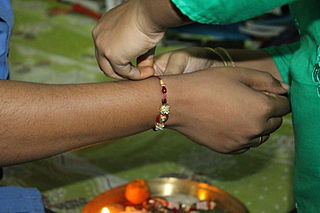
Raksha Bandhan is a popular and traditionally Hindu annual rite or ceremony that is central to a festival of the same name celebrated in South Asia. It is also celebrated in other parts of the world significantly influenced by Hindu culture. On this day, sisters of all ages tie a talisman or amulet called the rakhi around the wrists of their brothers. They symbolically protect them, receive a gift in return, and traditionally invest the brothers with a share of the responsibility of their potential care.
Political anthropology is the comparative study of politics in a broad range of historical, social, and cultural settings.
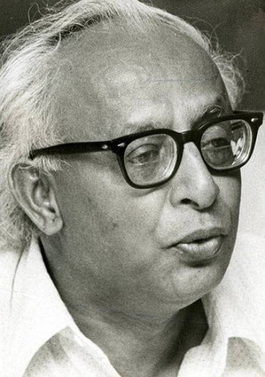
Mysore Narasimhachar Srinivas was an Indian sociologist and social anthropologist. He is mostly known for his work on caste and caste systems, social stratification, Sanskritisation and Westernisation in southern India and the concept of 'dominant caste'. He is considered to be one of the pioneering personalities in the field of sociology and social anthropology in India as his work in Rampura remains one of the early examples of ethnography in India. That was in contrast to most of his contemporaries of the Bombay School, who focused primarily on a historical methodology to conduct research, mainly in Indology. He also founded the Department of Sociology at the Delhi School of Economics, University of Delhi in 1959.
History of anthropology in this article refers primarily to the 18th- and 19th-century precursors of modern anthropology. The term anthropology itself, innovated as a Neo-Latin scientific word during the Renaissance, has always meant "the study of man". The topics to be included and the terminology have varied historically. At present they are more elaborate than they were during the development of anthropology. For a presentation of modern social and cultural anthropology as they have developed in Britain, France, and North America since approximately 1900, see the relevant sections under Anthropology.

André Beteille, is an Indian sociologist, writer and academician. He is known for his studies of the caste system in South India. He has served with educational institutions in India such as Delhi School of Economics, North Eastern Hill University, and Ashoka University.

Lalita Prasad Vidyarthi was an Indian anthropologist.
S. N. Balagangadhara is a professor emeritus of the Ghent University in Belgium, and was director of the India Platform and the Research Centre Vergelijkende Cutuurwetenschap.
Muslim communities in South Asia apply a system of social stratification. The stratification that operates among Muslims arises from concerns other than in the concepts of pure and impure that are integral to the Indian caste system. It developed as a result of relations between the foreign conquerors and upper caste Hindus who converted to Islam (Ashraf) and the local lower caste converts (Ajlaf) as well as the continuation of the Indian caste system among local converts. Non-Ashrafs are backward caste converts. The neologism "Pasmanda" includes Ajlaf and Arzal Muslims, and Ajlafs' statuses are defined by them being the descendants of converts to Islam and are also defined by their pesha (profession). These terms are not used in local, sociological vocabulary in places such as Kashmir and Uttar Pradesh, and therefore tell us very little about the functioning of Muslim society.
Legal anthropology, also known as the anthropology of laws, is a sub-discipline of anthropology that uses an interdisciplinary approach to "the cross-cultural study of social ordering". The questions that Legal Anthropologists seek to answer concern how is law present in cultures? How does it manifest? How may anthropologists contribute to understandings of law?

R. S. Khare is a socio-cultural anthropologist and a Professor of Anthropology at the University of Virginia, U.S. He is known for studying “from within/without” India's changing society, religions, food systems, and political cultures, and for following the trajectories of contemporary Indian traditional and modern cultural discourses. His anthropology has endeavored to widen reasoned bridges across the India-West cultural, religious-philosophical, and literary distinctions and differences.
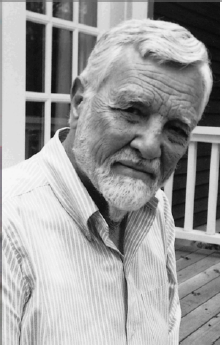
Charles Miller Leslie (1923-2009) was an American medical anthropologist, who was an avid contributor of published works in his branch of anthropology. Leslie’s career was influential to the shaping of medical anthropology, as his works have inspired other medical anthropologists to further research and popularize anthropological concepts which includes medical pluralism, social relations of therapy management, the relationship between state and medical systems, and health discourse. Leslie’s main focus within medical anthropology has been the study of Asian medical systems, specifically Ayurvedic, Unani, and Chinese medicine.
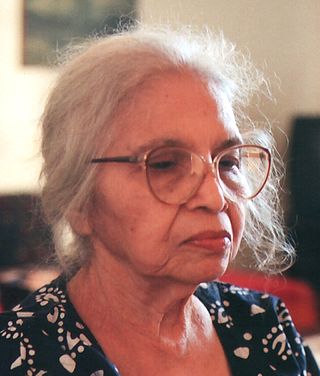
Leela Dube was a renowned anthropologist and feminist scholar, fondly called Leeladee by many. She had been married to the renowned anthropologist and sociologist LateShyama Charan Dube. Leela Dube was the younger sister of the late classical singer Sumati Mutatkar. Her elder son Late Mukul Dube was an avid photographer. She is survived by her younger son, Saurabh Dube. Known for her work on kinship and in women's studies, she wrote several books including Matriliny and Islam: religion and society in the Laccadives and Women and kinship: comparative perspectives on gender in South and South‑east Asia.

David Beniaminovich Zilberman was a Russian-American philosopher and sociologist, scholar of Indian philosophy and culture. He was well-versed in the study of languages and knew Russian, Sanskrit, English, Slavic languages, Ancient Greek, French, and German.
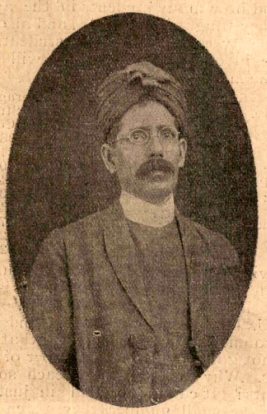
Sarat Chandra Roy was an Indian scholar of anthropology. He is sometimes regarded as the 'father of Indian ethnography', the 'first Indian ethnographer', and as the 'first Indian anthropologist'.
Tarak Chandra Das (1898–1964) was an anthropologist of Calcutta University. He did his Masters' from Calcutta University in ‘Ancient Indian History and Culture’ and joined the then newly founded Department of Anthropology at Calcutta University in 1921 as a research scholar and then he became lecturer in 1923 and finally retired as a Reader from the Department in 1963. Das conducted extensive fieldworks in Chotanagpur in the then Bihar and in Assam.

Gitel (Gertrude) Poznanski Steed was an American cultural anthropologist known for her research in India 1950–52 involving ethnological work in three villages to study the complex detail of their social structure. She supplemented her research with thousands of ethnological photographs of the individuals and groups studied, the quality of which was recognised by Edward Steichen. She experienced chronic illnesses after her return from the field, but nevertheless completed publications and many lectures but did not survive to finish a book The Human Career in Village India which was to integrate and unify her many-sided studies of human character formation in the cultural/historical context of India.

Transnational Reproduction: Race, Kinship, and Commercial Surrogacy in India is a 2016 book by anthropologist Daisy Deomampo. The book analyzes transnational commercial surrogacy, focusing on the practices of doctors, surrogates, parents, and agents in India. The book proposes that the practice of transnational surrogacy reinforces social status distinctions through a shared "racial reproductive imaginary". Transnational Reproduction was reviewed in Medical Anthropology Quarterly, Social Anthropology, Anthropological Quarterly, International Journal of Comparative Sociology, and Signs.
Susan Snow Wadley is an American anthropologist.
References
- ↑ "McKim Marriott Insists on Understanding India on its Own Terms". 5 April 2020.
{{cite journal}}: Cite journal requires|journal=(help) - ↑ "McKim Marriott - Department of Anthropology - Division of Social Sciences - University of Chicago". anthropology.uchicago.edu. Retrieved 6 October 2017.
- ↑ "McKim Marriott : Biography and Contribution to World Sociology". 12 April 2014. Retrieved 6 October 2017.
- ↑ Fürer-Haimendorf, C. Von (1957). "Marriott McKim (ed.): Village India: studies in the little community. (Comparative Studies of Cultures and Civilizations, [No, 6]) xix, 269 pp. 61 illus., plates, map. Chicago: University of Chicago Press, 1955. $4.50. (English agents: C.U.P. 34s". Bulletin of the School of Oriental and African Studies. 19 (2): 394–395. doi:10.1017/S0041977X00133282. S2CID 163037210 . Retrieved 6 October 2017– via Cambridge Core.
- ↑ "McKim Marriott - American anthropologist" . Retrieved 6 October 2017.
- ↑ Moffatt, Michael (1990). "Deconstructing Mc Kim Marriott's Ethnosociology: An Outcaste's Critique". Contributions to Indian Sociology. 24 (2): 215–236. doi:10.1177/006996690024002005. S2CID 146425676.
- ↑ Gerow, Edwin (6 October 2017). Marriott, McKim (ed.). "India as a Philosophical Problem: Mckim Marriott and the Comparative Enterprise". Journal of the American Oriental Society. 120 (3): 410–429. doi:10.2307/606012. JSTOR 606012.
- ↑ "McKim Marriott Insists on Understanding India on its Own Terms". 5 April 2020.